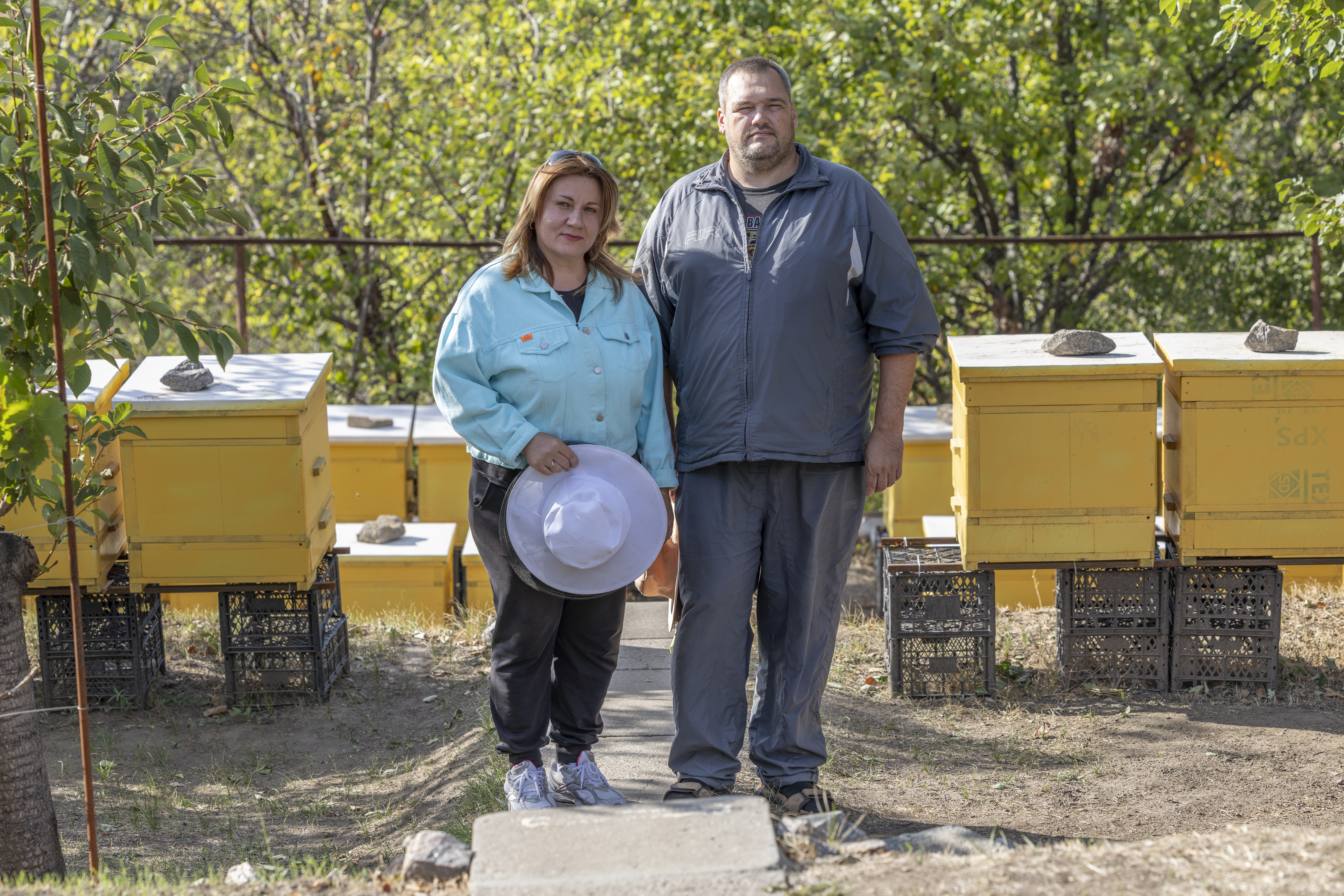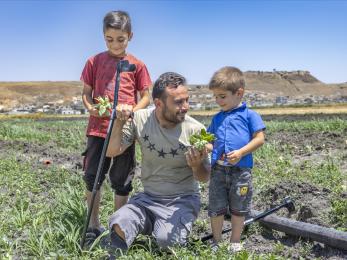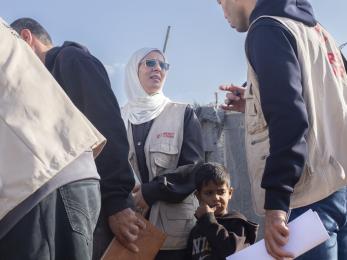Unlocking a future for Syria's youth
Once they dreamed of lives as artists, doctors and teachers. But after five years of war, Syria’s youth are a generation trapped, growing restless and frustrated by unending conflict.
From refugee camps in Turkey and Jordan to basement apartments in Lebanon and Iraq, time for these youth is dissolving. Three months away from home becomes nine; a semester out of school becomes four years. Relatives are scattered and friends unreachable.
Yet despite the circumstances, we have an incredible opportunity to unlock their potential.
Around the world, Mercy Corps’ work helps people meet the urgent needs of today — and nowhere are those needs more pressing than Syria. Mercy Corps works with Syria's youth because we see them as changemakers, with the passion to dream of a better world and the drive to build it. Given the chance, they can live lives of high stakes, engineering new hospitals, shaping new economies and mentoring the youth who come behind them.
This generation may have come of age in conflict, but they can leave a legacy of peace. We refuse to leave their futures up to fate.
A generation of youth at the crossroads
Mercy Corps focuses on youth because their critical stage of development has placed them at a crossroads. Before the war, more than 70 percent of Syrian adolescents were enrolled in secondary school, and 95 percent of the country could read. But a life of learning has become a fight to stay alive.
In a 2015 survey, more than half of Syrian refugee children in Turkey had witnessed someone get attacked or shot at; even more had experienced a death in the family. Almost half already showed symptoms of post-traumatic stress disorder.
After living as much as one-third of their lives on the run from war, the question for these youth is not just when they can go home, but what home will be left for them to go back to.
But though these youth have lost their homes, their schools and five years of their lives, they have not lost their resolve. In recent interviews Mercy Corps conducted in Lebanon, Turkey, Jordan and Iraq, every Syrian adolescent we spoke to made passionate calls for the war to end.
They told us how they longed to finish school, to return home so they could make something of themselves, and a desire, above everything, to do it so they can rebuild Syria.
Bridging a critical gap for refugees
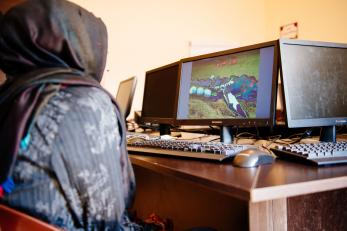
For Dalia, that drive has led to a new community, thanks to a Mercy Corps youth center near her home in Lebanon. In Syria, Dalia was a straight-A student nearing graduation and on track to become a flight engineer. But war has put that dream on hold.
“I always had a clear goal in life,” she says. “Now I’m trying, but I’m living in limbo.”
The youth center in Sidon has bridged a critical gap in Dalia’s life by allowing her to focus on her future. At the center, Dalia is learning English and computer skills while connecting with a community of girls her age.
“I have things within me that are greater than words,” she says.
These safe spaces are particularly important in light of the intense pressures facing refugee youth. Because legitimate work for refugees is almost impossible, many boys are forced to become the sole providers for their families at just 14 and 15 years old, supporting as many as seven or eight people on their own. Young girls—with no access to education and no way to work—are pressured to marry to ease the burden on their families.
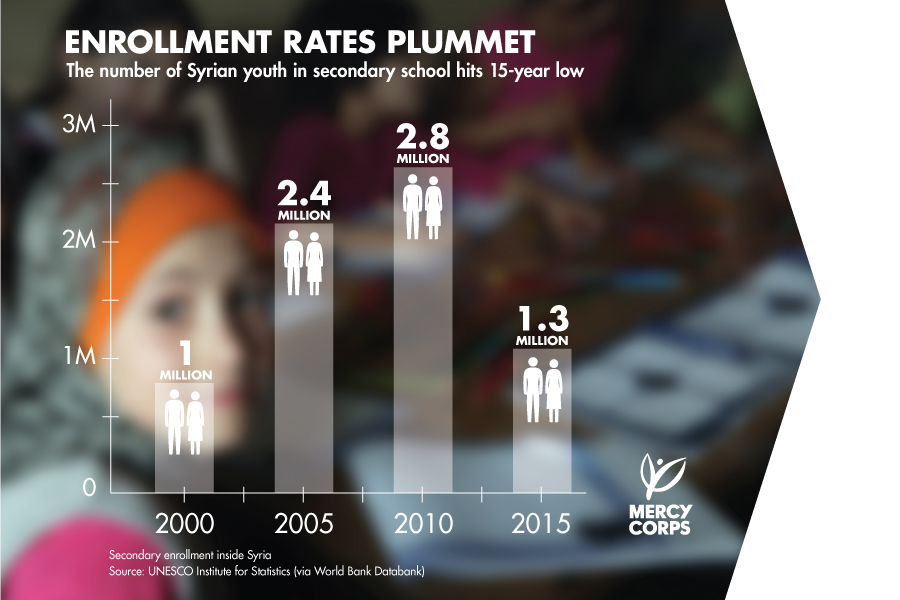
More serious than unemployment, however, is how unemployment makes these youth feel.
We know from research that youth are not drawn to extremism by poverty: They are drawn by a sense of injustice. Syria’s youth need to feel that society has a place for them. They need to feel that they have a voice, that their presence matters, and that even in the face of ongoing conflict, their future is still within sight.
Meeting conflict with community
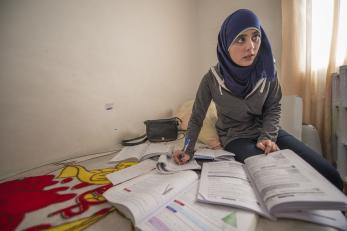
Mercy Corps’ work allows them to believe it. In Jordan’s Al-Azraq camp, Syrian refugees play soccer, learn life skills, study IT, practice taekwondo and make crafts. In Turkey, they take classes in English, Turkish, guitar, calligraphy, painting and aerobics. They learn vocational skills like hairdressing and shaving. They develop self-confidence in a group and practice positive decision-making to help them plan for the future.
In a world that offers few connections, these youth have a place where they feel valued.
Amina, 19, knows how important that connection can be. Though she finished high school in Syria, in Jordan she can go no further. Yet she is not content to wait around. At a Mercy Corps youth center near her home, Amina is pushing herself to study German and English — but she’s also pushing those around her by tutoring her fellow refugees.
“My brothers and sisters and I want to learn so we will be able to help rebuild Syria,” she says. “I believe that I will return one day. But if I return now and I haven’t finished my studies, I can do nothing.”
A brighter world, together
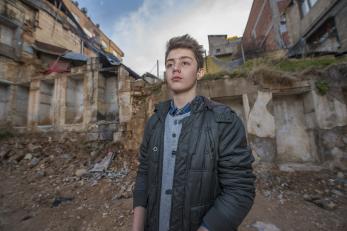
Syria’s youth have the power to create incredible change, but every day takes them further away from their potential. We need to clear a pathway forward: to their education, to their communities, and to their futures.
We need to involve youth in governance and allow them to have a strong voice for non-violent change. We need to develop them into leaders and advocate for their place at the table. We need to model the peaceful engagement that can bring stability.
We need to empower youth like Sami, a 15-year-old Syrian refugee in Turkey who has not let a life in limbo rob him of his dream to be a doctor.
“I don’t want to just sit and watch TV,” he says. “I want to do something and be remembered.”
The Syrian crisis is the world’s most serious humanitarian challenge. Yet it is also an unprecedented opportunity—to empower an entire generation of young people who represent the hope of prosperity and reconciliation. When these youth see a brighter future, a better world is possible.
Together we can show them the way there.
Our recommendations for Syrian youth
- We need to make young people real partners in change. We need to empower young people, listen to them, and give them a real voice in shaping real decisions. We need to help them to come together to forge a strong voice for non-violent change and involve them in deciding the shape of aid programs that seek to help them.
- We need to see the big picture. Young people don’t live their lives separated out into different boxes. We need to help them so that all their needs – physical, emotional, educational and economic – get talked about, listened to, and acted upon.
- We need to focus on well-being, education and employment.
Well-being: Syrian youth are under great stress at a critical time in their lives. We need to help young people understand their stresses, work through problems in a non-violent way, and make good decisions.
Education: Investment in non-formal education can reach the hundreds of thousands of youth who have dropped out of school and won’t be going back. Through these models, Syrians and other marginalized youth can get the critical skills that are in demand in the labor market.
Opportunities to work: Mercy Corps is calling on the international community to build a foundation for safe, decent and fair jobs for refugees. We especially need to invest in industries that will be vital for post-war reconstruction in Syria, including construction and technology.
